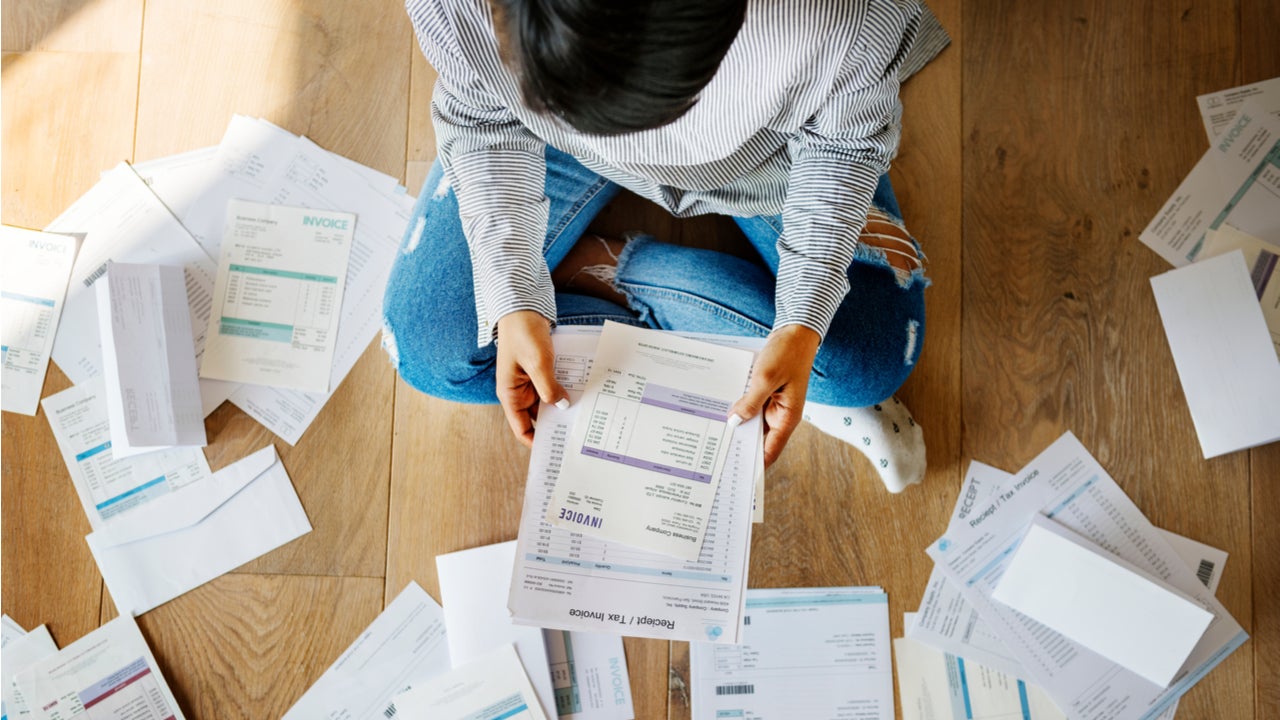How to build business credit

Many businesses borrow capital to fund startup costs, grow their team and make substantial upgrades to their business. Having a good business credit score will give you access to more favorable financing options with higher loan amounts, helping you get the most out of your small business loans.
However, it takes time to build your business credit, and it’s completely separate from your personal FICO score. Building up your business credit works in a similar fashion to your personal credit score, but there are some notable differences. Here’s everything you need to know.
Step 1: Register your business
Registering your business as a separate entity is the first step to building business credit. While this step does not automatically give you a business credit score, formally starting a business is the key that opens up credit-building possibilities.
Founders can choose from several business structures, such as limited liability companies (LLCs) and S-Corps. When you register your business, you must also apply for an Employer Identification Number (EIN).
This 9-digit number is similar to your Social Security Number, but it’s a way for the IRS to identify your company. Sole proprietors do not need EINs to operate, but it’s a good idea for most sole proprietors to have EINs. That’s because you must have an EIN to open a business bank account and obtain financing from business lenders.
Step 2: Get a DUNS number
This step isn’t required for establishing business credit, but it can jumpstart the process. Requesting a Data Universal Number System (DUNS) number from Dun & Broadsheet will put your business into their system. Dun & Bradstreet is one of the three major business credit bureaus, with Experian and Equifax being the other two.
You will have to visit the Dun & Bradstreet website to apply for a DUNS number. The processing time normally takes up to 30 business days, but the company has an expedited option if you need to quickly establish business credit. Once you’ve applied for a DUNS number, you will have a credit file open with the bureau and you will be able to start building a Paydex score.
Some lenders may require a DUNS number during the application process. However, it’s worth noting that you can also find plenty of business lenders that only request your EIN and other basic information.
You don’t have to follow a similar process with Experian or Equifax. Those business credit bureaus will eventually create credit reports for your company as lenders, vendors, and suppliers report your payment history.
Step 3: Open a business bank account and credit card
A business bank account will indirectly improve your business credit score, while a business credit card can have an immediate impact. Both of these financial products are critical for any business owner.
Opening a business bank account allows you to establish a relationship with a financial institution. This relationship can make loans and lines of credit more accessible when you need them.
A business bank account can also lead to tradelines with vendors and suppliers that boost your business credit score. Major business credit bureaus look at the payment history on each of your tradelines when determining your score.
Notably, a business bank account also lets you separate your personal assets from your business assets. This separation can protect you if your company gets involved in a legal issue.
You should also open a business credit card. Some of these cards come with great rewards, and your payment history will be reported to the major business credit bureaus. You can also borrow money against the credit line, but it’s best to pay off the entire balance at the end of each month. Disciplined payment of your credit card balance will go a long way toward building your credit.
Step 4: Work with companies that report to credit bureaus
Many vendors and suppliers give their customers tradelines that credit bureaus get to see. If you pay your vendors and suppliers on time, the positive payment history will increase your business credit score.
However, your on-time payments only build business credit if the vendor or supplier uses a tradeline. Paying expenses with cash instead of credit will not impact your business credit score.
Vendors and suppliers aren’t the only entities that can build your business credit score. Lenders can also help. When you need to borrow money for your business, you should check if a potential lender reports your payment history to the major business credit bureaus. Luckily, most lenders report your payment history, offering another opportunity to boost your business credit score.
Step 5: Monitor your business credit score
Most business owners regularly monitor their income and expenses to ensure they can keep up with costs. However, it’s also important to stay on top of your business credit score. Regularly monitoring your business credit can help you stay focused and ensure that you end up with great credit.
You can check your credit report with each of the three credit bureaus. Doing so will give you an idea of where your company currently stands. However, it’s also possible to find mistakes in your credit report, such as a paid account showing up as unpaid.
While these mistakes don’t happen too often, spotting them and getting them resolved with the credit bureau will add a few extra points to your score. You’ll typically have to pay a small fee to access your business credit report. However, many banks partner with major credit bureaus, so you can see your business credit score for free.
Why business credit matters
Your business credit score is an important number that ranges from 0-100. Having a great business credit score can open new doors for your company, while having a poor score can limit your growth opportunities.
For some founders, a good business score can be the difference between staying open and having to shutter the doors for good. Your business credit is important for the following reasons:
- Minimum lending requirements: Business lenders have several requirements for financing, and one of the largest factors is your business credit score. Most lenders require that you have a minimum score of 75 or higher to obtain capital.
- Borrow more money: Lenders tend to give more capital to companies with excellent business credit scores. A high business credit score tells creditors that you are more likely to make on-time payments.
- Get lower interest rates: Lenders will compete with each other to do business with high-credit businesses. As a result, you will receive a lower interest rate if you have a good business credit score.
- Easier access to commercial properties: Mortgage lenders always look at your credit score, but so do landlords. If you want to rent a space in your area, having a good business credit score is often a prerequisite.
- Shield your personal credit: A business credit score allows you to separate your personal FICO score from your company’s credit.
- Better relationships: Vendors and suppliers will be more eager to do business with someone who has a high business credit score. These companies want to ensure they work with clients who pay on time.
- Lower insurance premiums: Accumulating more points to your business credit score can result in lower insurance premiums. Insurers will feel more confident to work with you if you have great business credit.
The bottom line
A good business credit score can help you save a lot of money. Building your credit will help you secure lower interest rates, insurance premium discounts and better rent prices. In all, a strong credit score creates a better environment to foster your company’s growth and success.
It can take some time to set up your business so it has an EIN and some of your payment history gets reported to the major credit bureaus. However, that effort and patience is worth it in the long run.
Once you have your business structure set up and start building credit, you’ll be well on the path to saving money while growing your company.
Frequently asked questions
Why we ask for feedback Your feedback helps us improve our content and services. It takes less than a minute to complete.
Your responses are anonymous and will only be used for improving our website.
You may also like

How to manage a business loan: 6 tips

How to get a secured business loan




